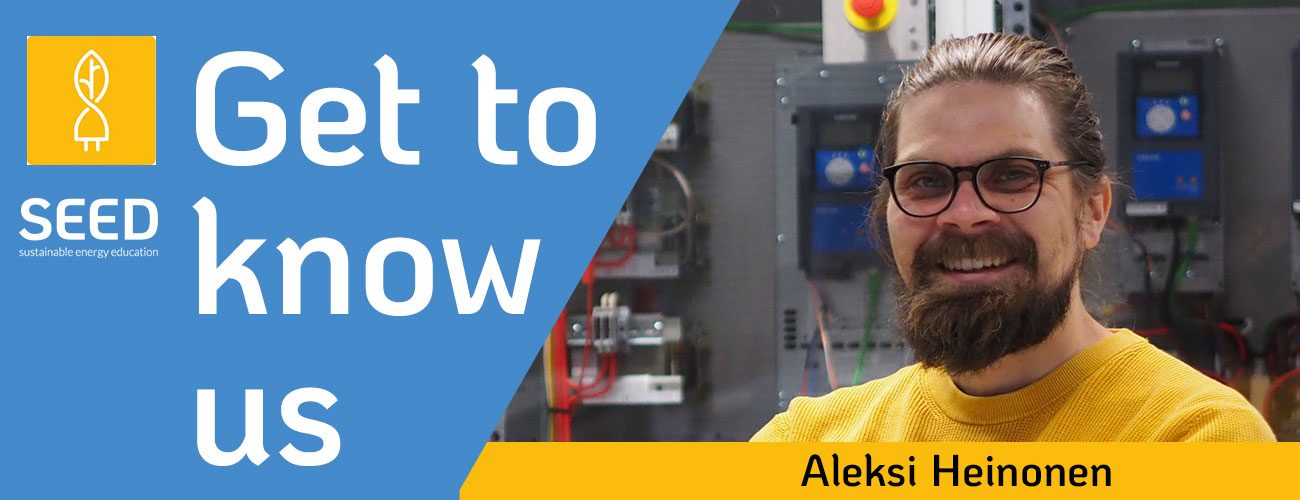Aleksi Heinonen, project manager for CoVEs SEED in Turku University of Applied Sciences, talks about the possibilities the project provides for the companies in Southwest Finland region and beyond.
What motivated you to get involved in the SEED project?
I work in Turku University of Applied Sciences with the New Energy Research Group, where we focus on renewable energy and the challenges of switching to cleaner energy. The SEED project aligns perfectly with our goals. I’m excited about contributing to solutions for the energy transition and working with others who share the same passion. I believe that SEED’s approach of fostering collaboration between VET schools, universities of applied sciences, and companies can efficiently address the emerging skill requirements necessary for developing innovative solutions in the field of sustainable energy.
How do you think the project can contribute to developing the regional CoVE?
One of the things I find exciting about the SEED project is its potential to create Regional Centers of Vocational Excellence (CoVEs). These centers are important places for learning and innovation in sustainable energy. Through SEED, we want to provide tools and methods for developing regional strategies, working together on projects, and involving many different people. Sharing what works best and spreading knowledge between regions is essential. SEED also gives us a chance to try out new ideas and ways of working, which can lead to innovation and progress.
What do you think are the biggest challenges you might face in the SEED project?
Big projects like SEED come with challenges. One of them in engaging the stakeholders: we know it won’t be easy to involve and work with all the stakeholders who are essential to be part of the project to reach its goals. Finding ways for everyone to benefit and cooperate will need creative thinking and adaptability. We also want to make sure that the CoVEs we create can keep going even after the SEED project is finished to ensure the necessary skills for energy transition are passed on even after the project.
How do you think the project can benefit the local economy?
SEED can help local economies in many ways. By making sure that education matches to the needs of the companies, we can make sure people have the right skills for the jobs. We’re also trying out new ways of working together, which can help solve problems and create new ideas. Having a workforce with skills for the future can help local economies grow, works more efficiently, attracting new investments and opportunities in the field of green transition.
How will the project ensure the transfer of knowledge and best practices?
To make sure the SEED project’s impact lasts, we have a plan for sharing what we learn. We’ll communicate with different groups of people to spread the best ways of doing things. We’ll also test new ideas within the CoVEs we create. We’re working on ways for different regions to cooperate, so the SEED project’s spirit lives on even after it’s done. Hosting events and conferences will help us share knowledge and experiences.
In conclusion, I’m part of the SEED project because I want to help with the challenges of the energy transition. By working together, coming up with new ideas, and focusing on long-lasting results, we can make a positive difference in our regions and beyond.

